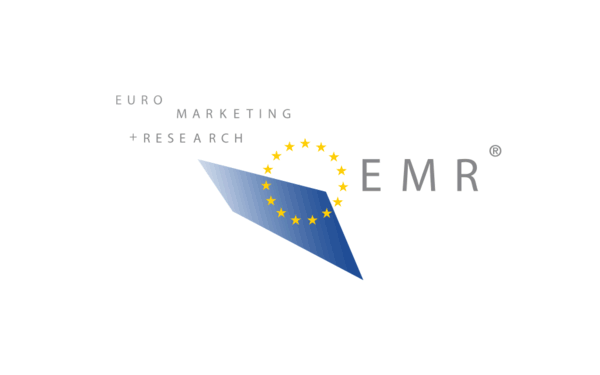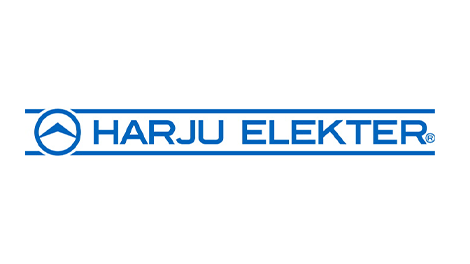Harju Elekter – Harju Elekter Group financial results, 1-9/2024
Harju Elekter Group financial results, 1-9/2024
Third quarter results for Harju Elekter were in line with expectations. The decline in the volume of orders, which started in the spring, had a significant impact on revenues, which fell by almost a third during the reporting quarter. In order to maintain strong profitability, the Group’s companies used several cost-saving measures, an important part of which was the adjustment of the number of employees in line with the business volumes. During this year, the number of employees in the Group decreased from 956 to 841. The company has been able to reasonably reduce labour costs and simultaneously optimize general administrative expenses.
At the end of the third quarter, we once again saw a new increase in order volumes, but these will be largely reflected in revenues in the spring and summer of the new year. It is clear that there will be at least two more difficult quarters ahead. We must continue to pursue the course of reasonable savings, without losing the high level of competence that will ensure success in the periods ahead.
We are about to begin preparing the 2025 budget. In the near future, the strategic development plan for years 2025–2030, prepared by management, will also be approved. We continue to see good opportunities for growth in both business volumes and profitability in our sector.
At the end of 2024, the parent company of the Harju Elekter Group will move from Keila to the Tondi business district of Tallinn. We began to change the role of the Group’s parent company two years ago by establishing a reasonable level of sector-specific management in the Group’s companies. One of the functions of the Harju Elekter Group is to manage all subsidiaries with equal attention. The financial results of the last two years are a testament to the success of this management model, and the move to Tallinn represents a fitting end to this phase of change.
Revenue and financial results
The revenue decline in the third quarter was influenced by a decrease in core business orders and the stabilization of previously increased order volumes in key markets. The nine-month total results achieved exceeded the corresponding period in last year thanks to the strong financial performance achieved by the Lithuanian, Estonian, and Finnish business units in the second quarter. The growth in profitability was driven by the unravelling of supply chain difficulties in the previous year, higher order volumes in the second quarter, and optimisation of the number of employees. In the reporting quarter, revenue was 41.2 (2023 Q3: 56.2) million euros and for the nine months, it was 144.7 (2023 9M: 158.3) million euros.

The group’s operating expenses decreased by 26.5% compared to previous quarters, reaching 38.5 (2023 Q3: 52.4) million euros. The largest part of the decrease came from the cost of sales, which dropped by 13.8 million, totaling 35.1 million euros. Distribution costs also decreased by 0.3 million, amounting to 1.1 million euros, while administrative expenses increased by 0.2 million, reaching 2.4 million euros. This increase is related to investments in management and support functions of the company. Over nine months, the operating expenses totaled 136.4 (2023 9M: 150.4) million euros, meaning the decrease in costs was slightly greater than the decline in revenue.
Depreciation cost was 6.6% lower than last year, amounting to 1.0 million euros due to the alignment and revaluation of depreciation periods for fixed assets within the group. Over nine months, depreciation expenses decreased by 7.9%, totaling 2.9 million euros. Since order volumes declined, the share of depreciation expenses in operating expenses increased slightly. The labour cost ratio to the group’s revenue increased in the reporting quarter to 19.8% (2023 Q3: 16.5%) and to 19.9% over nine months (2023 9M: 18.6%). The decrease in labour costs has been influenced by the significant reduction in the number of employees in the Estonian, Finnish, and Lithuanian production units.
The gross profit for the reporting quarter was 6,113 (2023 Q3: 7,378) thousand euros and the gross profit margin was 14.8% (2023 Q3: 13.1%). 9 months’ gross profit was 19,121 (2023 9M: 19,372) thousand euros and the gross profit margin was 13.2% (2023 9M: 12.2%). The margin growth was supported by more efficient management of work processes and better utilization of production capacity, as well as the optimization of overhead costs, including the reduction in the number of employees. Profitability was also significantly affected by the specifics of the projects, the shar of products sold and target markets, as well as the overall global economic environment.
Operating profit (EBIT) for nine months was 8,135 (2023 9M: 7,323) thousand euros and net profit was 5,478 (2023 9M: 5,026) thousand euros. Net profit per share was 0.30 (2023 9M: 0.27) euros.
Core business and markets
Revenue from the production segment, the core business decreased by 28.1% in the third quarter compared to the previous year and by 8.6% over the nine-month comparison. The production segment generated revenue of 38.5 (2023 Q3: 53.6) million euros in the third quarter and 137.2 (2023 9M: 150.2) million euros over nine months. Sales of electrical equipment accounted for 93.4% and 94.8% of the group’s revenue for the quarter and for the nine months, respectively. The decline in revenue was primarily due to a reduction in orders in the company’s key markets, which is linked to decreased orders from distribution networks and contract manufacturing works for the second half of the year.
The Group’s largest target markets—Estonia, Finland, Sweden, and Norway – accounted for 84,3% of the total revenue in the third quarter. In the reporting quarter, the group earned 6.4 (2023 Q3: 5.1) million euros from the Estonian market, which is 24.5% more than the previous year. As a result, the revenue over nine months also grew by 13.4%, reaching 17.7 (2023 9M: 15.6) million euros. The increase in sales in Estonia was mainly driven by higher sales of compact substations to electricity distribution network customers.
Revenue from the Finnish market decreased by 17.7%, reaching 16.9 million euros, compared to 20.5 million euros in the same period last year. Over the nine months, the decline was 14.5%, resulting in revenue falling to 54.5 (2023 9M: 63.7) million euros. The decline in revenue in Finland was due to lower demand for compact substations, resulting from changes in utility price control methods implemented at the beginning of 2024 and also by a decrease in sales of electric vehicle charging stations and solar energy solutions.
Revenue from the Norwegian market halved compared to the third quarter of the previous year. In the reporting quarter, revenue was 5.7 (2023 Q3: 12.6) million euros, and over nine months, a total of 23.1 (2023 9M: 28.1) million euros. The largest decline occurred in the sales of drive cabinets and motor control centers to contractual customers in the maritime sector.
Similar to other Scandinavian countries, the group’s revenue in the reporting quarter also declined on the Swedish market, decreasing by 26.1% compared to the previous year. The quarterly revenue was 5.7 (2023 Q3: 7.7) million euros, and over nine months, it reached 21.2 (2023 9M: 23.3) million euros. The main reason for the revenue decline was significant changes in the business model, including the decision to discontinue the sale of EPC projects, or turnkey solutions, and to focus on factory-made products.
Investments
During nine months, Harju Elekter invested a total of 2.8 (2023 9M: 5.0) million euros in non-current assets, including 1.4 (2023 9M: 4.2) million euros in investment properties, 0.7 (2023 9M: 0.6) million euros in property, plant, and equipment, and 0.7 (2023 9M: 0.2) million euros in intangible assets. The investments included large-scale renovation and reconstruction work at the Keila industrial park, aimed at meeting the needs of the long-term tenant, Prysmian Group Baltics. Additionally, production technology equipment’s were acquired, and production and process management systems were developed.
As of the reporting date, the value of the Group’s long-term financial investments was 27.7 (31.12.23: 29.2) million euros. In the second quarter, most of the listed securities were sold. The fair value of the remaining securities slightly increased in the reporting quarter but decreased by 66 thousand euros over nine months of the reporting year
Share
The company’s share price on the last trading day of the reporting quarter on the Nasdaq Tallinn Stock Exchange closed at 4.66 euros.



SourceHarju Elekter
EMR Analysis
More information on Harju Elekter: See the full profile on EMR Executive Services
More information on Tiit Atso (Chairman of the Board & Chief Executive Officer, AS Harju Elekter): See the full profile on EMR Executive Services
More information on Priit Treial (Member of the Board and Chief Financial Officer, AS Harju Elekter + Member of the Boards of AS Harju Elekter’s Subsidiaries): See the full profile on EMR Executive Services
EMR Additional Financial Notes:
- Major financial KPI’s since 2017 are available on EMR Executive Services under “Financial Results” and comparison with peers under “Market Positioning”
- Companies’ full profile on EMR Executive Services are based on their official press releases, quarterly financial reports, annual reports and other official documents.
- All members of the Executive Committee and of the Board have their full profile on EMR Executive Services
- Harju Elekter Q3 2024 Interim Report can be found here: https://ml-eu.globenewswire.com/Resource/Download/cd9f0f38-65d7-4ab0-a573-e1ce9efecd97
- Harju Elekter 2023 Annual Report can be found here: https://harjuelekter.com/wp-content/uploads/2024/03/Annual-Report-of-Harju-Elekter-2023.pdf
- Harju Elekter 2022 Annual Report can be found here: https://harjuelekter.com/wp-content/uploads/2023/03/Annual-Report-of-Harju-Elekter-2022-pdf.pdf
- Harju Elekter 2021 Annual Report can be found here: https://harjuelekter.com/wp-content/uploads/2022/04/Annual-Report-of-Harju-Elekter-2021.pdf


